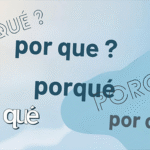How to Ask Someone’s Age and Say Your Age in Spanish: A Complete Guide
If you’re learning Spanish, you might be surprised to learn that we don’t use the verb “to be” (ser or estar) to talk about age. Instead, we use the verb tener, which means “to have.” So, while in English you say “I am 20 years old,” in Spanish, you literally say “I have 20 years.”
This guide will walk you through everything you need to know, from basic sentences to more nuanced expressions.
The Golden Rule: Use the Verb Tener
The most important rule is this: In Spanish, you always use the verb tener (to have) to express age.
- Incorrect: ~~Soy 20 años.~~ (Using ser – to be)
- Incorrect: ~~Estoy 20 años.~~ (Using estar – to be)
- Correct: Tengo 20 años. (I have 20 years.)
This concept is part of a bigger pattern in Spanish where tener is used for many states of being. If you want to master this essential verb, check out our complete guide on The Verb Tener: Conjugation and Uses.
Conjugation of Tener for Age
Let’s review how to conjugate tener in the present tense with age. Notice that the word años (years) is often used, but can be omitted in informal contexts.
| Pronoun | Conjugation | Example Sentence | English Translation |
|---|---|---|---|
| Yo | tengo | Tengo 30 años. | I am 30 years old. |
| Tú | tienes | ¿Tú tienes 25 (años)? | Are you 25? |
| Él / Ella / Usted | tiene | Ella tiene 15 años. ¿Cuántos años tiene usted? | She is 15. How old are you (formal)? |
| Nosotros/as | tenemos | Tenemos 40 años. | We are 40 years old. |
| Vosotros/as | tenéis | Vosotros tenéis 18 años. | You all are 18 (used in Spain). |
| Ellos / Ellas / Ustedes | tienen | Ellos tienen 10 años. | They are 10 years old. |
Pro Tip: While you can sometimes drop the word años in casual conversation (e.g., “Tengo 30”), it’s always correct and clearer to include it, especially while you are learning.
How to Ask Someone’s Age in Spanish
Asking about age is straightforward. The key is to match the formality of the question to the person you’re speaking with.
Informal Questions (With friends, family, children)
- ¿Cuántos años tienes? (How many years do you have?)
- ¿Qué edad tienes? (What age do you have?) – A very common alternative.
Formal Questions (With elders, in professional settings, with strangers)
- ¿Cuántos años tiene usted? (How many years do you have?)
- ¿Qué edad tiene usted? (What age do you have?)
Asking About Someone Else’s Age
To ask about a third person, simply use the same structure.
- ¿Cuántos años tiene Marco? (How old is Marco?)
- ¿Qué edad tiene tu hermana? (How old is your sister?)
- ¿Cuántos años tienen tus padres? (How old are your parents?)
Grammar Note: The question word “Cuántos” must agree in gender and number with the noun it modifies. Since años is masculine and plural, we use “cuántos”. If you were asking about a feminine noun, you would change it accordingly (e.g., ¿Cuántas personas?). For a deeper dive into this, read our article on Spanish Definite and Indefinite Articles.
Special Cases and Nuances
Talking About Babies
For babies who are less than a year old, we use meses (months) instead of años.
- El bebé tiene 6 meses. (The baby is 6 months old.)
- Mi sobrina tiene 11 meses. (My niece is 11 months old.)
Expressing “To Be X Years Old”
You can also use the structure “tener + [number] + años + de edad” for emphasis, though it’s less common than the simple tener + [number] + años.
- Tengo 21 años de edad. (I am 21 years of age.)
Common Mistakes to Avoid
- Using Ser or Estar: This is the most common error. Remember, you have years, you are not them.
- Wrong: ~~Soy 25 años.~~
- Right: Tengo 25 años.
- Misusing “Cuántos”: Remember the agreement! It’s always “¿Cuántos años…?”
Practice Dialogue: Putting It All Together
Let’s see these phrases in a natural conversation.
Context: Ana meets her new classmate, Carlos.
- Ana: Hola, soy Ana. Mucho gusto.
(Hi, I’m Ana. Nice to meet you.) - Carlos: Igualmente, soy Carlos. Oye, ¿cuántos años tienes?
(Likewise, I’m Carlos. Hey, how old are you?) - Ana: Tengo 22 años. ¿Y tú?
(I’m 22. And you?) - Carlos: Yo tengo 23. Nuestro profesor parece joven, ¿cuántos años tendrá?
(I’m 23. Our professor looks young, how old do you think he is?) - Ana: No estoy segura, pero quizás tiene unos 30 años.
(I’m not sure, but maybe he’s about 30 years old.)
Beyond Age: Other Useful Tener Expressions
The verb tener is used for many physical and emotional states. Learning these will make you sound much more natural. Here are a few common ones:
- tener hambre: to be hungry
- tener sed: to be thirsty
- tener sueño: to be sleepy
- tener frío/calor: to be cold/hot
- tener miedo: to be afraid
- tener prisa: to be in a hurry
- tener razón: to be right
Test Your Knowledge!
Ready to see how well you understand this topic? We have created a fun and interactive quiz to help you master how to talk about age in Spanish.
➡️ Click here to take the “Age in Spanish” Quiz! Perfect for practice and DELE test preparation as well…
Practice these phrases, and you’ll be able to talk about age like a native speaker! Remember, the key is to use tener. ¡Buena suerte!


